#devops as service
Explore tagged Tumblr posts
Text
In the ever-evolving landscape of information technology, the term “DevOps” has gained significant prominence. It is a portmanteau of “Development” and “Operations,” representing a holistic approach to software development and management. It seeks to create a collaborative and shared responsibility culture between software developers and operations teams, streamlining the entire application development life cycle. Today, we’ll delve into the core concepts of the DevOps methodology, its historical context, and the essential tools and principles that underpin its effectiveness. Additionally, we’ll explore the significance of it for various stakeholders, including businesses, IT professionals, and aspiring DevOps engineers.
#DevOps methodology#DevOps services#DevOps solution#DevOps#Techsaga Corporations#azure devops services#devops tools#devops meaning#devops as service
0 notes
Text
We provide skilled middle and senior-level team members on 3+ month contracts, working 40 hours per week and aligning with your time zone. Our DevOps team ensures rapid response times, from 30 minutes to 4 hours during business hours, and under 15 minutes for 24/7 support. With access to in-house experts and high uptime guarantees for production environments, we deliver reliable, tailored solutions.
2 notes
·
View notes
Text
Secure and Scalable Cloud Server Management at Atcuality
For businesses seeking to enhance scalability and maintain top-tier security, Atcuality provides unparalleled cloud server management services. Our solutions cover all aspects of cloud server maintenance, including load balancing, patch management, data backups, and disaster recovery planning. Our experienced professionals work with cutting-edge tools to ensure that your servers are secure, efficient, and scalable to meet changing business needs. Whether you operate in e-commerce, finance, or technology, we tailor our services to align with your operational goals. With Atcuality as your trusted partner, you can focus on driving growth while we handle the technical complexities of cloud management.
#seo marketing#seo services#artificial intelligence#azure cloud services#seo agency#digital marketing#seo company#iot applications#ai powered application#amazon web services#ai applications#virtual reality#augmented reality agency#augmented human c4 621#augmented and virtual reality market#augmented intelligence#augmented reality#cloud security services#cloud computing#cloud services#cloud service provider#cloud server hosting#software#devops#information technology#cash collection application#task management#blockchain#web developing company#web development
2 notes
·
View notes
Text

Are you falling behind in your e-commerce game? commercetools can be your savior.
Our commercetools development services can fulfill your e-commerce needs, including:
High customization: Customize your store as per your brand image
Best-of-breed features: Take the most out of the best tools to provide a smooth shopping experience
Less risk: We help you overcome common errors
Faster TTM: Get your store up and running quicker
Let’s connect and give your e-commerce store the experience you want
https://www.altdigital.tech/about-us/contact-us
#commercetools #commercetoolsdevelopment #commercetoolsservices #commercetoolsdevelopmentservices #ecommerce #ecommerceservices
#it service provider#software devops service#digital strategy consultant#devops service#web development#software#commerce tools#digital transformation consultant#digital customer experience services
2 notes
·
View notes
Text
Uncover the power of AWS with our carousel of key findings! Dive into essential AWS statistics and unlock insights you didn't know you needed.



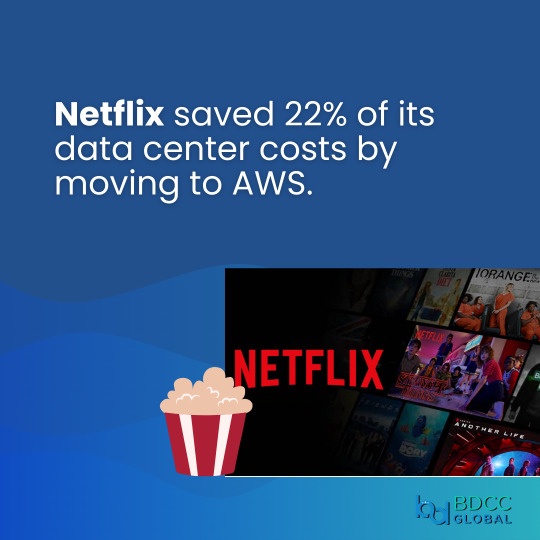
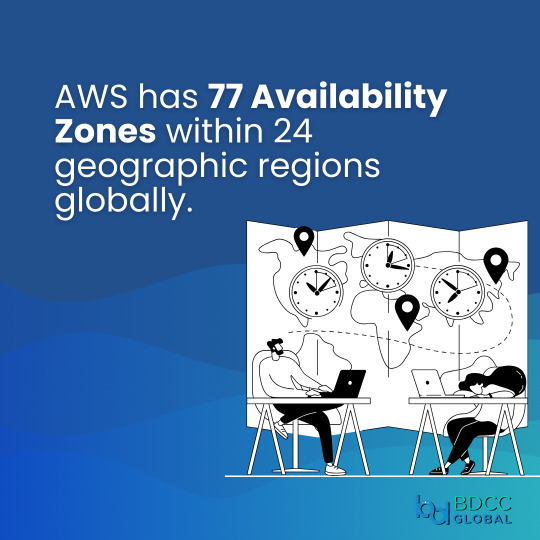
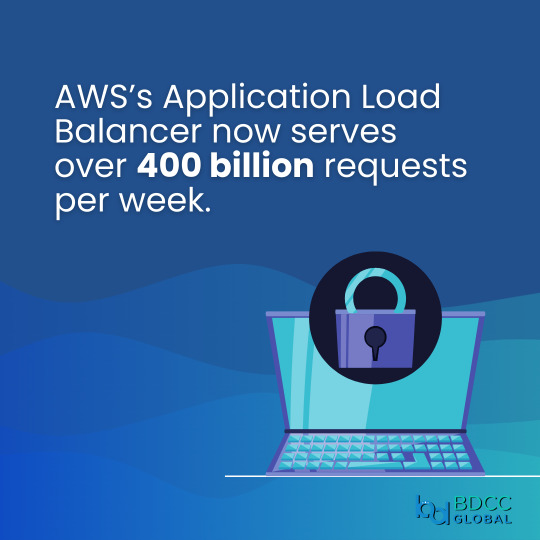
4 notes
·
View notes
Text
Top FAQs about Azure DevOps Consulting

The complexity of modern software development is overwhelming you, don't you think? Do you want to increase output and simplify your processes? Azure DevOps can assist! To help you understand how Azure DevOps consulting can help your business, this blog article answers the most common questions regarding it.
Here are the key factors: ➡️ You can create automated testing and deployment pipelines, train your teams on best practices, and set up and configure DevOps services with the assistance of Azure DevOps specialists.
➡️ Businesses encounter difficulties with integration, security issues, and cultural opposition to change. You can overcome these obstacles by using consulting services.
➡️ Security is a top priority, and to guarantee compliance, consultants integrate security principles into your development pipeline.
➡️ It uses several features to optimize CI/CD pipelines for scalability and performance, and integrates with other tools.
Azure DevOps consulting might be a great help if you're trying to start from scratch or improve your current DevOps procedures.
Are you prepared to find out more? For a more thorough discussion of these subjects, visit the blog post!
4 notes
·
View notes
Text
Journey to Devops
The concept of “DevOps” has been gaining traction in the IT sector for a couple of years. It involves promoting teamwork and interaction, between software developers and IT operations groups to enhance the speed and reliability of software delivery. This strategy has become widely accepted as companies strive to provide software to meet customer needs and maintain an edge, in the industry. In this article we will explore the elements of becoming a DevOps Engineer.
Step 1: Get familiar with the basics of Software Development and IT Operations:
In order to pursue a career as a DevOps Engineer it is crucial to possess a grasp of software development and IT operations. Familiarity with programming languages like Python, Java, Ruby or PHP is essential. Additionally, having knowledge about operating systems, databases and networking is vital.
Step 2: Learn the principles of DevOps:
It is crucial to comprehend and apply the principles of DevOps. Automation, continuous integration, continuous deployment and continuous monitoring are aspects that need to be understood and implemented. It is vital to learn how these principles function and how to carry them out efficiently.
Step 3: Familiarize yourself with the DevOps toolchain:
Git: Git, a distributed version control system is extensively utilized by DevOps teams, for code repository management. It aids in monitoring code alterations facilitating collaboration, among team members and preserving a record of modifications made to the codebase.
Ansible: Ansible is an open source tool used for managing configurations deploying applications and automating tasks. It simplifies infrastructure management. Saves time when performing tasks.
Docker: Docker, on the other hand is a platform for containerization that allows DevOps engineers to bundle applications and dependencies into containers. This ensures consistency and compatibility across environments from development, to production.
Kubernetes: Kubernetes is an open-source container orchestration platform that helps manage and scale containers. It helps automate the deployment, scaling, and management of applications and micro-services.
Jenkins: Jenkins is an open-source automation server that helps automate the process of building, testing, and deploying software. It helps to automate repetitive tasks and improve the speed and efficiency of the software delivery process.
Nagios: Nagios is an open-source monitoring tool that helps us monitor the health and performance of our IT infrastructure. It also helps us to identify and resolve issues in real-time and ensure the high availability and reliability of IT systems as well.
Terraform: Terraform is an infrastructure as code (IAC) tool that helps manage and provision IT infrastructure. It helps us automate the process of provisioning and configuring IT resources and ensures consistency between development and production environments.
Step 4: Gain practical experience:
The best way to gain practical experience is by working on real projects and bootcamps. You can start by contributing to open-source projects or participating in coding challenges and hackathons. You can also attend workshops and online courses to improve your skills.
Step 5: Get certified:
Getting certified in DevOps can help you stand out from the crowd and showcase your expertise to various people. Some of the most popular certifications are:
Certified Kubernetes Administrator (CKA)
AWS Certified DevOps Engineer
Microsoft Certified: Azure DevOps Engineer Expert
AWS Certified Cloud Practitioner
Step 6: Build a strong professional network:
Networking is one of the most important parts of becoming a DevOps Engineer. You can join online communities, attend conferences, join webinars and connect with other professionals in the field. This will help you stay up-to-date with the latest developments and also help you find job opportunities and success.
Conclusion:
You can start your journey towards a successful career in DevOps. The most important thing is to be passionate about your work and continuously learn and improve your skills. With the right skills, experience, and network, you can achieve great success in this field and earn valuable experience.
2 notes
·
View notes
Text
14 notes
·
View notes
Text
Unveiling the Wonders of DevOps: Exploring Benefits and Challenges in Simple Language
Hello tech enthusiasts! If you've ever been curious about DevOps and desire a clear breakdown of its advantages and drawbacks, you're in for a treat. Let's dive into the marvels and obstacles of DevOps using plain and simple language from The Best Devops Training Institute in Bangalore.

The Upsides: Embracing the Magic of DevOps
1. Swift Software Delivery:
The Marvel: DevOps functions like a magician's wand, hastening the pace of software development and delivery. Updates and features roll out faster, ensuring you stay agile in the ever-evolving tech landscape. I will highly recommend the best Devops Course in Bangalore.
Why It's Fantastic: Quick updates keep you relevant and adaptable in a fast-paced digital world.
2. Team Collaboration Triumphs:
The Marvel: In the DevOps universe, developers and operations teams become dynamic partners. No more working in isolation; they team up to eliminate obstacles and ensure a seamless flow of creativity and technical expertise.
Why It's Fantastic: Team synergy fosters innovation, leading to more robust and inventive software.
3. Reduced Glitches, Enhanced Stability:
The Marvel: Similar to a flawless spell, DevOps minimizes software glitches. It's a time-saver, making your software more dependable.
Why It's Fantastic: Spending less time troubleshooting issues means more time for creating exceptional software.
4. Automation Magic:
The Marvel: Just like a magical incantation, mundane tasks can be automated with DevOps. This translates to less time devoted to routine chores and more time for imaginative and impactful work.
Why It's Fantastic: Automation liberates you from the shackles of repetitive tasks, unleashing your creative potential.
5. Continuous Feedback Loop:
The Marvel: DevOps comes with a built-in oracle, offering insights into how changes impact the software. This continuous learning loop facilitates ongoing improvements.
Why It's Fantastic: Learning from every step ensures a software evolution that continually enhances.
6. Innovation Boost:
The Marvel: DevOps doesn't just deliver software; it fosters a culture of continuous improvement and innovation. Your software stays ahead with the latest and most exciting features.
Why It's Fantastic: Embracing innovation keeps your software at the forefront of the industry.
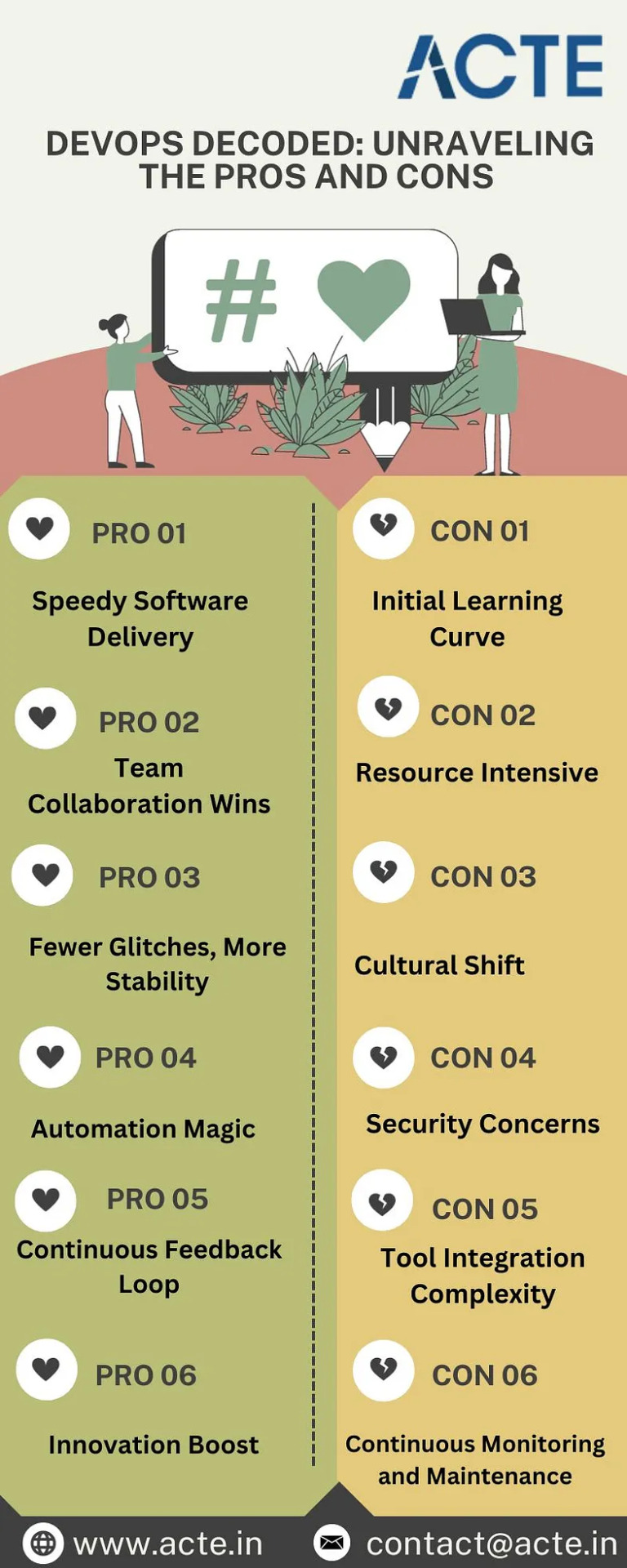
The Downsides: Navigating the Challenges of DevOps
1. Initial Learning Curve:
The Challenge: Implementing DevOps demands a shift in mindset and practices, leading to an initially steep learning curve.
Navigating It: Invest time in training and ensure everyone is on board to ease into the new DevOps culture.
2. Resource Intensive:
The Challenge: Adopting DevOps can require significant resources, from tools to skilled personnel.
Navigating It: Plan the transition carefully, allocate resources wisely, and consider gradual implementation.
3. Cultural Shift:
The Challenge: DevOps isn't just about tools; it's a cultural shift. Resistance to change can pose a stumbling block.
Navigating It: Communicate the benefits, involve the team in decision-making, and cultivate a collaborative culture.
4. Security Concerns:
The Challenge: The speed of DevOps can raise concerns about security lapses.
Navigating It: Integrate security measures into the DevOps pipeline and prioritize continuous security testing.
5. Tool Integration Complexity:
The Challenge: Integrating different tools in the DevOps toolchain can be complex.
Navigating It: Choose tools wisely, ensure compatibility, and provide training for seamless integration.
6. Continuous Monitoring and Maintenance:
The Challenge: DevOps requires continuous monitoring and maintenance, adding an ongoing responsibility.
Navigating It: Establish robust monitoring practices and allocate resources for ongoing maintenance.
Conclusion: Navigating the DevOps Journey
In the captivating realm of DevOps, the advantages are enchanting, offering speed, collaboration, and innovation. However, like any journey, challenges are present. The key lies in understanding and addressing these challenges, embracing the cultural shift, and crafting a DevOps strategy aligned with your team's goals. So, gear up, embrace the magic, and embark on a DevOps journey that transforms the way you create and deliver software!
2 notes
·
View notes
Text
DevOps Consulting Services | Goognu - Transforming Your Business with DevOps Solutions
Goognu offers top-notch DevOps consulting services to help businesses streamline their software development and operations. Our expert team provides comprehensive solutions for implementing DevOps practices, optimizing workflows, and automating processes. Boost your productivity, agility, and efficiency with our tailored DevOps strategies. Contact us today for a consultation and take your business to new heights with Goognu's industry-leading DevOps expertise.
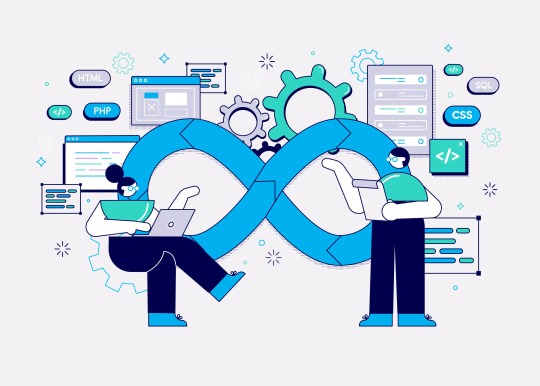
3 notes
·
View notes
Text
Azure’s Evolution: What Every IT Pro Should Know About Microsoft’s Cloud
IT professionals need to keep ahead of the curve in the ever changing world of technology today. The cloud has become an integral part of modern IT infrastructure, and one of the leading players in this domain is Microsoft Azure. Azure’s evolution over the years has been nothing short of remarkable, making it essential for IT pros to understand its journey and keep pace with its innovations. In this blog, we’ll take you on a journey through Azure’s transformation, exploring its history, service portfolio, global reach, security measures, and much more. By the end of this article, you’ll have a comprehensive understanding of what every IT pro should know about Microsoft’s cloud platform.
Historical Overview
Azure’s Humble Beginnings
Microsoft Azure was officially launched in February 2010 as “Windows Azure.” It began as a platform-as-a-service (PaaS) offering primarily focused on providing Windows-based cloud services.
The Azure Branding Shift
In 2014, Microsoft rebranded Windows Azure to Microsoft Azure to reflect its broader support for various operating systems, programming languages, and frameworks. This rebranding marked a significant shift in Azure’s identity and capabilities.
Key Milestones
Over the years, Azure has achieved numerous milestones, including the introduction of Azure Virtual Machines, Azure App Service, and the Azure Marketplace. These milestones have expanded its capabilities and made it a go-to choice for businesses of all sizes.
Expanding Service Portfolio
Azure’s service portfolio has grown exponentially since its inception. Today, it offers a vast array of services catering to diverse needs:
Compute Services: Azure provides a range of options, from virtual machines (VMs) to serverless computing with Azure Functions.
Data Services: Azure offers data storage solutions like Azure SQL Database, Cosmos DB, and Azure Data Lake Storage.
AI and Machine Learning: With Azure Machine Learning and Cognitive Services, IT pros can harness the power of AI for their applications.
IoT Solutions: Azure IoT Hub and IoT Central simplify the development and management of IoT solutions.
Azure Regions and Global Reach
Azure boasts an extensive network of data centers spread across the globe. This global presence offers several advantages:
Scalability: IT pros can easily scale their applications by deploying resources in multiple regions.
Redundancy: Azure’s global datacenter presence ensures high availability and data redundancy.
Data Sovereignty: Choosing the right Azure region is crucial for data compliance and sovereignty.
Integration and Hybrid Solutions
Azure’s integration capabilities are a boon for businesses with hybrid cloud needs. Azure Arc, for instance, allows you to manage on-premises, multi-cloud, and edge environments through a unified interface. Azure’s compatibility with other cloud providers simplifies multi-cloud management.
Security and Compliance
Azure has made significant strides in security and compliance. It offers features like Azure Security Center, Azure Active Directory, and extensive compliance certifications. IT pros can leverage these tools to meet stringent security and regulatory requirements.
Azure Marketplace and Third-Party Offerings
Azure Marketplace is a treasure trove of third-party solutions that complement Azure services. IT pros can explore a wide range of offerings, from monitoring tools to cybersecurity solutions, to enhance their Azure deployments.
Azure DevOps and Automation
Automation is key to efficiently managing Azure resources. Azure DevOps services and tools facilitate continuous integration and continuous delivery (CI/CD), ensuring faster and more reliable application deployments.
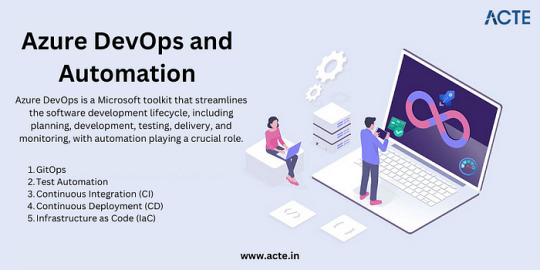
Monitoring and Management
Azure offers robust monitoring and management tools to help IT pros optimize resource usage, troubleshoot issues, and gain insights into their Azure deployments. Best practices for resource management can help reduce costs and improve performance.
Future Trends and Innovations
As the technology landscape continues to evolve, Azure remains at the forefront of innovation. Keep an eye on trends like edge computing and quantum computing, as Azure is likely to play a significant role in these domains.
Training and Certification
To excel in your IT career, consider pursuing Azure certifications. ACTE Institute offers a range of certifications, such as the Microsoft Azure course to validate your expertise in Azure technologies.

In conclusion, Azure’s evolution is a testament to Microsoft’s commitment to cloud innovation. As an IT professional, understanding Azure’s history, service offerings, global reach, security measures, and future trends is paramount. Azure’s versatility and comprehensive toolset make it a top choice for organizations worldwide. By staying informed and adapting to Azure’s evolving landscape, IT pros can remain at the forefront of cloud technology, delivering value to their organizations and clients in an ever-changing digital world. Embrace Azure’s evolution, and empower yourself for a successful future in the cloud.
#microsoft azure#tech#education#cloud services#azure devops#information technology#automation#innovation
2 notes
·
View notes
Text

2 notes
·
View notes
Text
How To Measure The Success of a DevOps Implementation in Your Organization?
DevOps has revolutionized the software development industry by enabling organizations to deliver applications and services faster, more efficiently, and with better quality. However, the success of a DevOps implementation can be hard to measure. In this blog post, we'll explore the key metrics and methods you can use to measure the success of your DevOps implementation in your organization.
Key Metrics to Measure DevOps Success
Deployment frequency: Deployment frequency is the number of times you release new code to production. A higher deployment frequency indicates that your organization is releasing new features and updates more frequently, which can help you stay ahead of the competition.
Lead time for changes: Lead time for changes is the time it takes to implement a change from code committed to its deployment in production. A shorter lead time indicates that your organization can quickly respond to market demands and changes in customer requirements.
Mean time to recover (MTTR): MTTR is the time it takes to recover from a failure or incident. A lower MTTR indicates that your organization has a more efficient incident response process, minimizing the impact of outages or failures.
Change failure rate: Change failure rate is the percentage of changes that result in a failure. A lower change failure rate indicates that your organization has a more stable and reliable software development process.
Customer satisfaction: Customer satisfaction is a measure of how happy your customers are with your product or service. A higher customer satisfaction score indicates that your organization is meeting or exceeding customer expectations.
Methods to Measure DevOps Success
Surveys: Surveys are a great way to measure customer satisfaction and gather feedback on the quality of your products and services. You can also use surveys to get feedback from your development and operations teams to identify areas for improvement.
A/B testing: A/B testing is a method of comparing two versions of a product or service to see which performs better. By testing different features and configurations, you can identify which changes have the biggest impact on your key metrics.
Analytics: Analytics tools can help you track user behavior, measure performance, and identify areas for improvement. By analyzing data on user engagement, conversion rates, and other key metrics, you can gain insights into how your product is being used and where you can make improvements.
Incident management: Incident management tools can help you track and respond to incidents, measure MTTR, and identify areas for improvement. By tracking incidents and analyzing data on incident response times, you can identify bottlenecks and inefficiencies in your incident response process.
Continuous improvement: Continuous improvement is a key principle of DevOps. By continuously reviewing and refining your processes, tools, and workflows, you can identify areas for improvement and make iterative improvements over time.
Conclusion
Measuring the success of a DevOps implementation can be challenging, but it's essential to track key metrics and use methods to gather feedback and identify areas for improvement. By focusing on metrics such as deployment frequency, lead time for changes, MTTR, change failure rate, and customer satisfaction, you can gain insights into the effectiveness of your DevOps implementation. Additionally, working with a DevOps consulting company that offers DevOps consulting services can help you identify areas for improvement and accelerate your DevOps journey.
#devops consulting company#devops consulting services#devops consultancies#devops consultants#devops consultancy
2 notes
·
View notes
Text
2 notes
·
View notes
Text
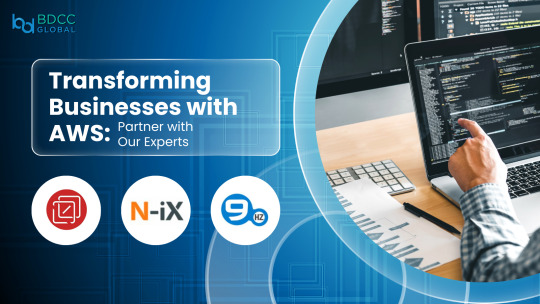
Elevate your business with AWS: Join forces with our expert team and unlock unprecedented growth and innovation. Let's transform together! https://www.bdccglobal.com/top-aws-consultants/
2 notes
·
View notes
Text
DevOps vs. DevSecOps: What Are the Differences Between Them

As technology advances and becomes more integrated into our daily lives, the need for efficient and secure software development and delivery has never been greater. In this rapidly changing field, staying up-to-date on the latest tools and techniques is essential for DevOps consulting businesses and their clients alike. As software development has become a daily affair for businesses, they must adopt diverse development philosophies to ensure top-notch results.
DevOps is a set of practices that aim to improve collaboration between development and operations teams, enabling organizations to deliver software more frequently and reliably. On the other hand, DevSecOps takes this further by integrating security into the software development process, ensuring that our software is secure and compliant. But there’s more to these concepts than meets the eye.
Let’s dive right into understanding what makes each of them important for businesses and how they are different and similar.
What is DevOps?
DevOps is a philosophy for better collaboration and communication between development and operations teams. Its goal is to enable organizations to deliver software more frequently and reliably by automating processes and improving infrastructure. It emphasizes the importance of culture, automation, and measurement in achieving these goals.
By adopting DevOps practices, organizations can streamline their development and delivery process, resulting in improved efficiency, higher quality software, and faster market time.
What is DevSecOps?
DevSecOps is a set of practices that integrate security into app development and delivery. It aims to bridge the gap between development, operations, and security teams by promoting collaboration and the integration of security tools and processes into the software development lifecycle (SDLC).
DevSecOps aims to proactively identify and address potential vulnerabilities and risks throughout the SDLC rather than waiting until the end of the process to address them.
By integrating security into the development process, organizations can ensure that the software they deliver is secure and compliant from the start.
Differences between DevOps and DevSecOps
DevOps and DevSecOps are philosophies and practices that aim to improve software development and delivery efficiency, reliability, and security.
However, many key differences between the two can be identified, such as:
Focus
DevOps focuses on improving cooperation and communication between development and operations teams and automating processes to enable more frequent and reliable software delivery. DevSecOps goes a little further, integrating the concept of security into app development.
Goals
DevOps aims to improve the efficiency, reliability, and speed of software delivery. The goal of DevSecOps is to improve security and compliance throughout the process of development.
Approaches
DevOps emphasizes the importance of culture, automation, and measurement in achieving its goals. DevSecOps adopts these approaches but also includes security as a key focus.
Teams
DevOps involves collaboration between development and operations teams. DevSecOps involves collaboration between development, operations, and security teams.
Tools and processes
Both DevOps and DevSecOps use a range of different tools and processes to support their respective goals.
Overall, DevOps and DevSecOps both aim to improve software development and delivery. DevOps focuses on improving collaboration and automation, while DevSecOps includes security as a key focus.
Bottom line
You may have now understood that DevOps and DevSecOps are extremely different. While their basics differ, both of them stand towards a common goal — improving the efficiency and value of the application process. In today’s highly competitive world, it has become imperative for DevOps implementation consulting companies to include DevSecOps in their development process to ensure the security of the app developed as early as possible.
However, you also need to hire DevOps engineers with years of experience, industry insights, and flexible business engagement models to get maximum value for your investments with them. AddWeb Solution is the best choice if you are looking for a DevOps consulting service provider. With more than a decade of experience and a team of exceptionally qualified and trained DevOps engineers, we can professionally meet all your DevOps consulting needs.
Originally Source by Addweb solution: devops-vs-devsecops
2 notes
·
View notes